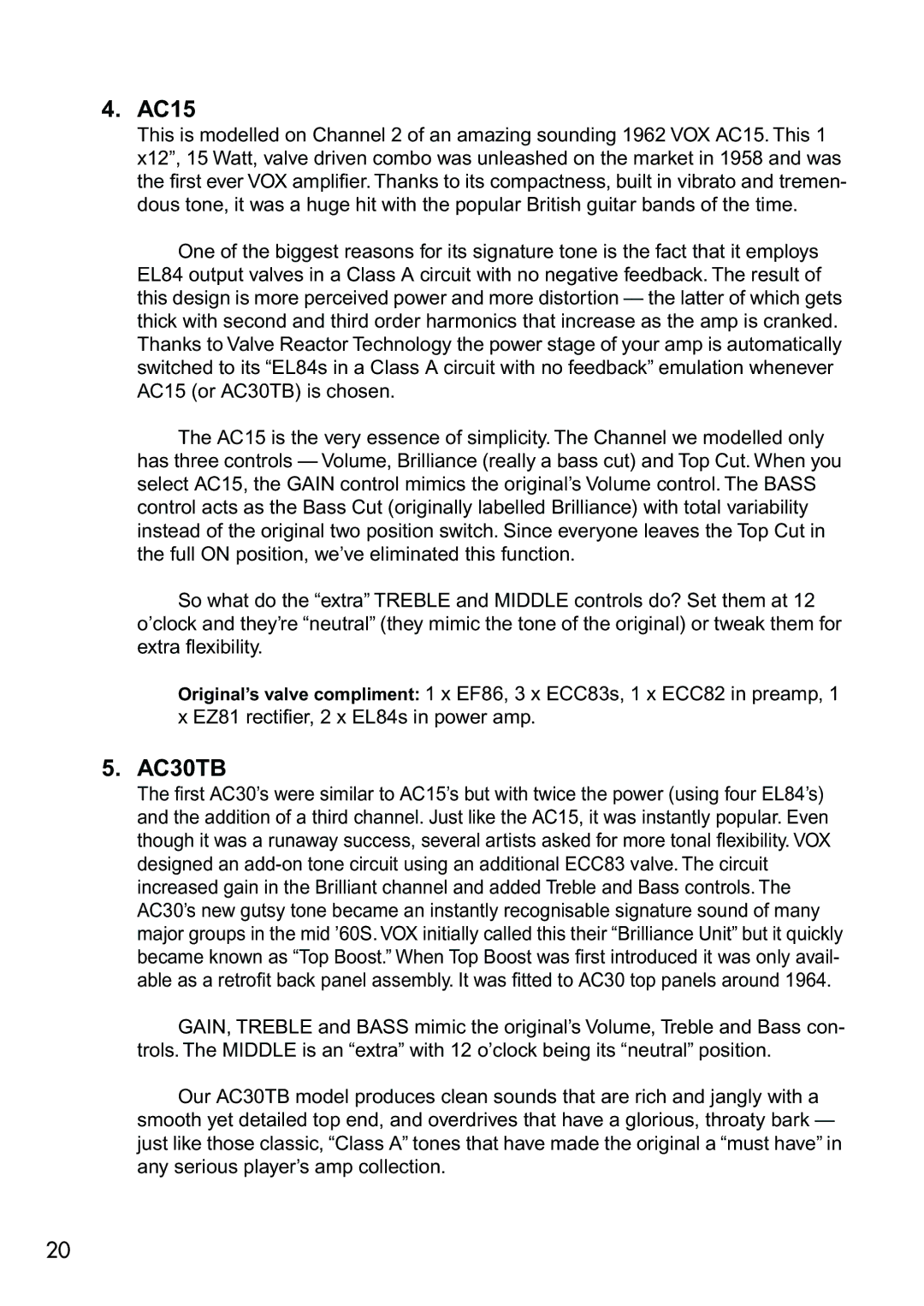4. AC15
This is modelled on Channel 2 of an amazing sounding 1962 VOX AC15. This 1 x12”, 15 Watt, valve driven combo was unleashed on the market in 1958 and was the first ever VOX amplifier. Thanks to its compactness, built in vibrato and tremen- dous tone, it was a huge hit with the popular British guitar bands of the time.
One of the biggest reasons for its signature tone is the fact that it employs EL84 output valves in a Class A circuit with no negative feedback. The result of this design is more perceived power and more distortion — the latter of which gets thick with second and third order harmonics that increase as the amp is cranked. Thanks to Valve Reactor Technology the power stage of your amp is automatically switched to its “EL84s in a Class A circuit with no feedback” emulation whenever AC15 (or AC30TB) is chosen.
The AC15 is the very essence of simplicity. The Channel we modelled only has three controls — Volume, Brilliance (really a bass cut) and Top Cut. When you select AC15, the GAIN control mimics the original’s Volume control. The BASS control acts as the Bass Cut (originally labelled Brilliance) with total variability instead of the original two position switch. Since everyone leaves the Top Cut in the full ON position, we’ve eliminated this function.
So what do the “extra” TREBLE and MIDDLE controls do? Set them at 12 o’clock and they’re “neutral” (they mimic the tone of the original) or tweak them for extra flexibility.
Original’s valve compliment: 1 x EF86, 3 x ECC83s, 1 x ECC82 in preamp, 1 x EZ81 rectifier, 2 x EL84s in power amp.
5. AC30TB
The first AC30’s were similar to AC15’s but with twice the power (using four EL84’s) and the addition of a third channel. Just like the AC15, it was instantly popular. Even though it was a runaway success, several artists asked for more tonal flexibility. VOX designed an
GAIN, TREBLE and BASS mimic the original’s Volume, Treble and Bass con- trols. The MIDDLE is an “extra” with 12 o’clock being its “neutral” position.
Our AC30TB model produces clean sounds that are rich and jangly with a smooth yet detailed top end, and overdrives that have a glorious, throaty bark — just like those classic, “Class A” tones that have made the original a “must have” in any serious player’s amp collection.
20
